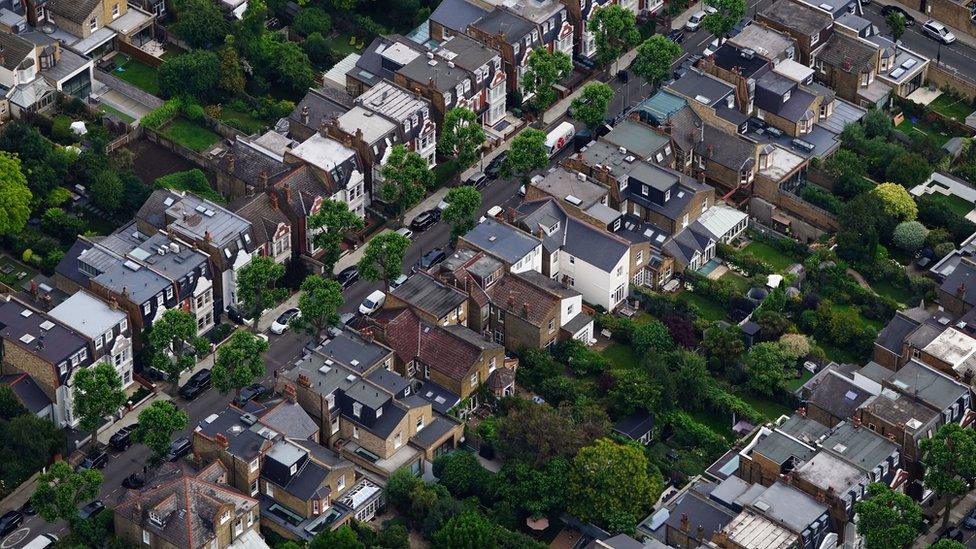Ten-year social home wait for foreign nationals in England
- Published

Foreign nationals could have to live in the UK for 10 years before qualifying for social housing in England, under government plans.
Ministers are considering introducing the requirement alongside a need for all applicants to show a two-year connection to the local area.
They have also announced new powers to ban people from social homes for up to five years for anti-social behaviour.
Those without the right to live in the UK are generally ineligible already.
Labour's housing secretary Angela Rayner called the announcement "absolute rubbish", as some people already on waiting lists were waiting more than a decade to access social housing.
Ministers were "gaslighting people who can't get homes," she told ITV, adding "they can't give British homes for British people".
Housing Minister Lee Rowley said the rules would ensure "decent and hardworking people that have contributed to this country" would get priority for social housing.
He added it would also mean "local law-abiding citizens in need have more access to a home," adding that social housing was "finite".
A consultation on the plans will run until 26 March, with changes then delivered "at the earliest opportunity" by amending housing laws.
Applications for social housing in England are determined by local councils, which can set their own eligibility terms.
But they are required to follow some nationwide rules, including when putting people forward from their waiting lists to live in properties owned by housing associations.
These generally require foreign nationals to have settled status in the UK and be eligible for state benefits to apply.
Under the planned "UK connection test" they would also have to live in the UK for a continuous period of 10 years before qualifying.
The government says this period is at the "upper limit" of the time that non-British citizens currently have to live in the UK before gaining settled status under the various routes to do so.
This new test would not apply to Irish citizens, Commonwealth citizens with right of abode, or qualifying EU citizens.
It would also not apply to refugees who come to the UK through designated safe and legal routes.
The government has also set out plans for a blanket two-year local residency requirement. Many, but not all, councils currently enforce their own local connection tests.
According to officials figures, 90% of lead tenants in new social housing lets in England were UK nationals - but the figures do vary between local areas.
'Three strikes'
Under the planned rules shake-up, those punished for anti-social behaviour could be barred from social housing for up to five years.
The government has said this will be subject to a "three strikes and you're out" policy, with three sanctions leading to a ban.
Ministers will also look at introducing a maximum household income threshold for new social housing applications, which will not apply to existing tenants.
The government has said it has no plans to change existing rules on how people who qualify for waiting lists are then prioritised for housing.
Those who are given preference currently include the legally homeless, and people living in insanitary or overcrowded housing.
There are also rules to ensure military veterans and those fleeing violence are not disadvantaged by residence requirements.
The National Housing Federation, which represents housing associations, said "serious policy and proper funding" was required to deliver tens of thousands of social homes.
Chief executive Kate Henderson added that social housing was "all the more scarce because of huge cuts in government funding" and the government's Right to Buy policy.
The Local Government Association, which represents councils, said it had raised concerns that extending qualification periods for social housing could lead to a rise in homelessness.
Cllr Darren Rodwell, the group's housing spokesman, said the policy was "symptomatic of our wider housing shortage", and called for councils to be given financial flexibility to resume their "historic role as a major builder of affordable homes".
Related topics
- Published19 December 2023
